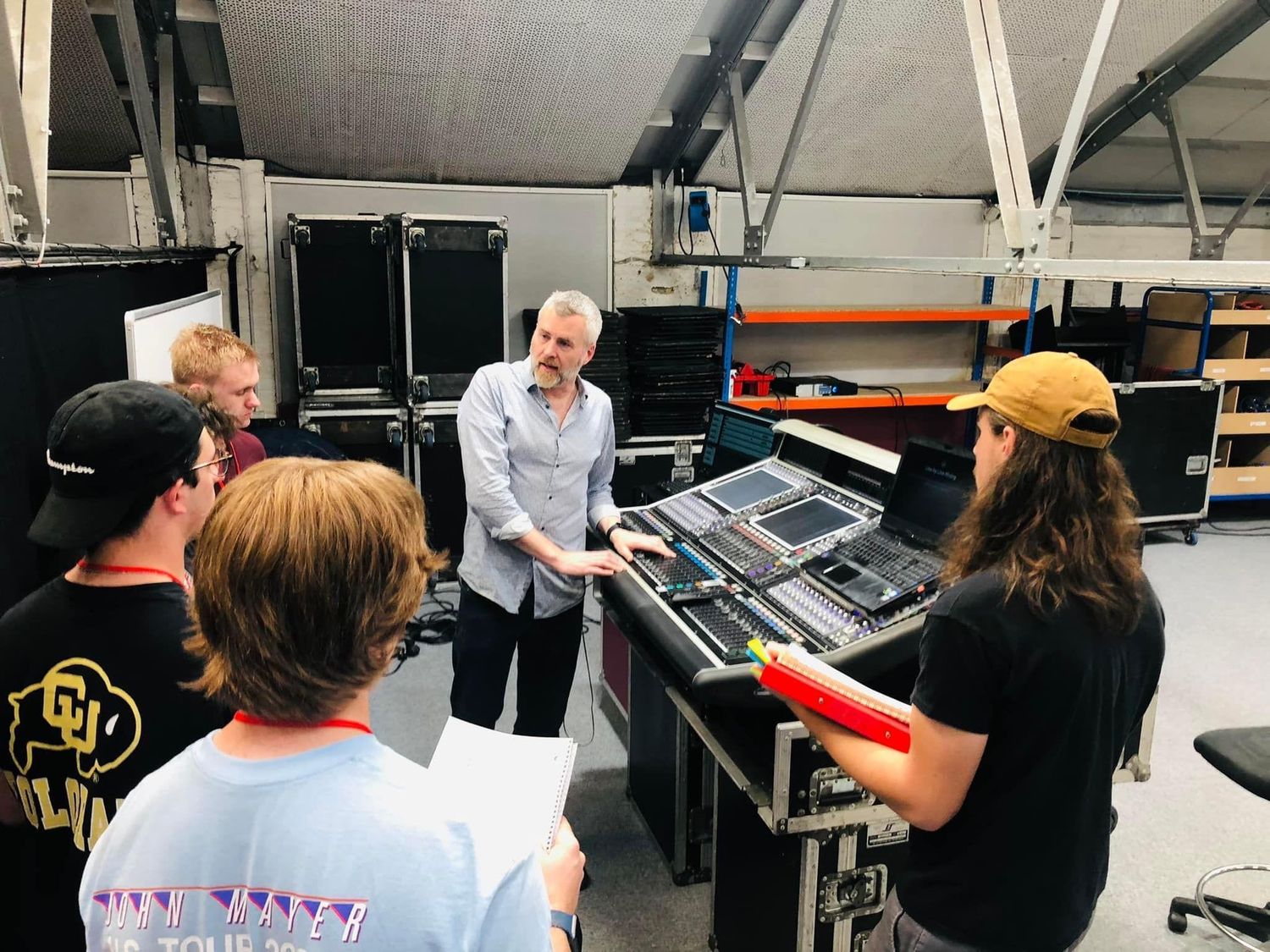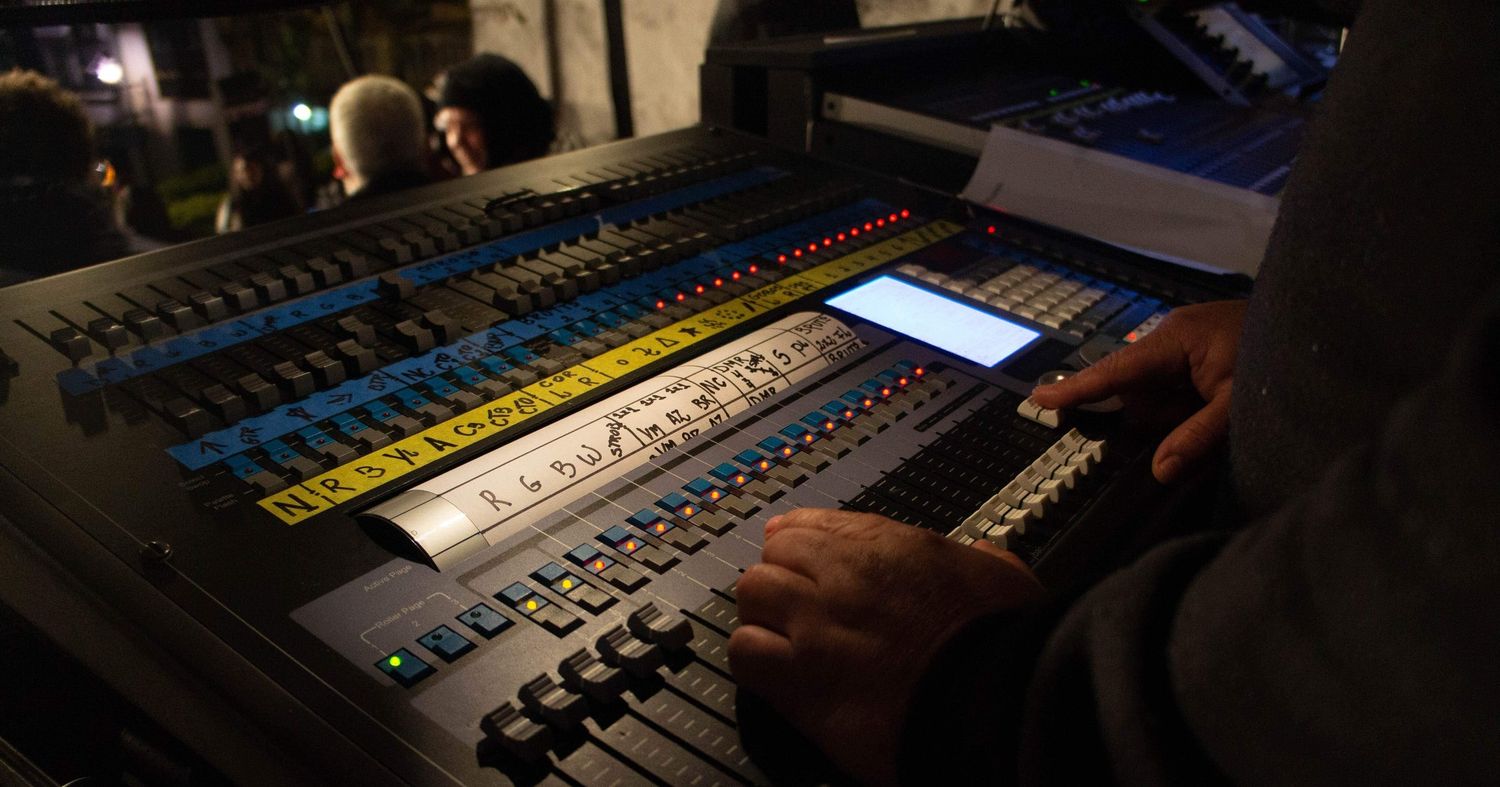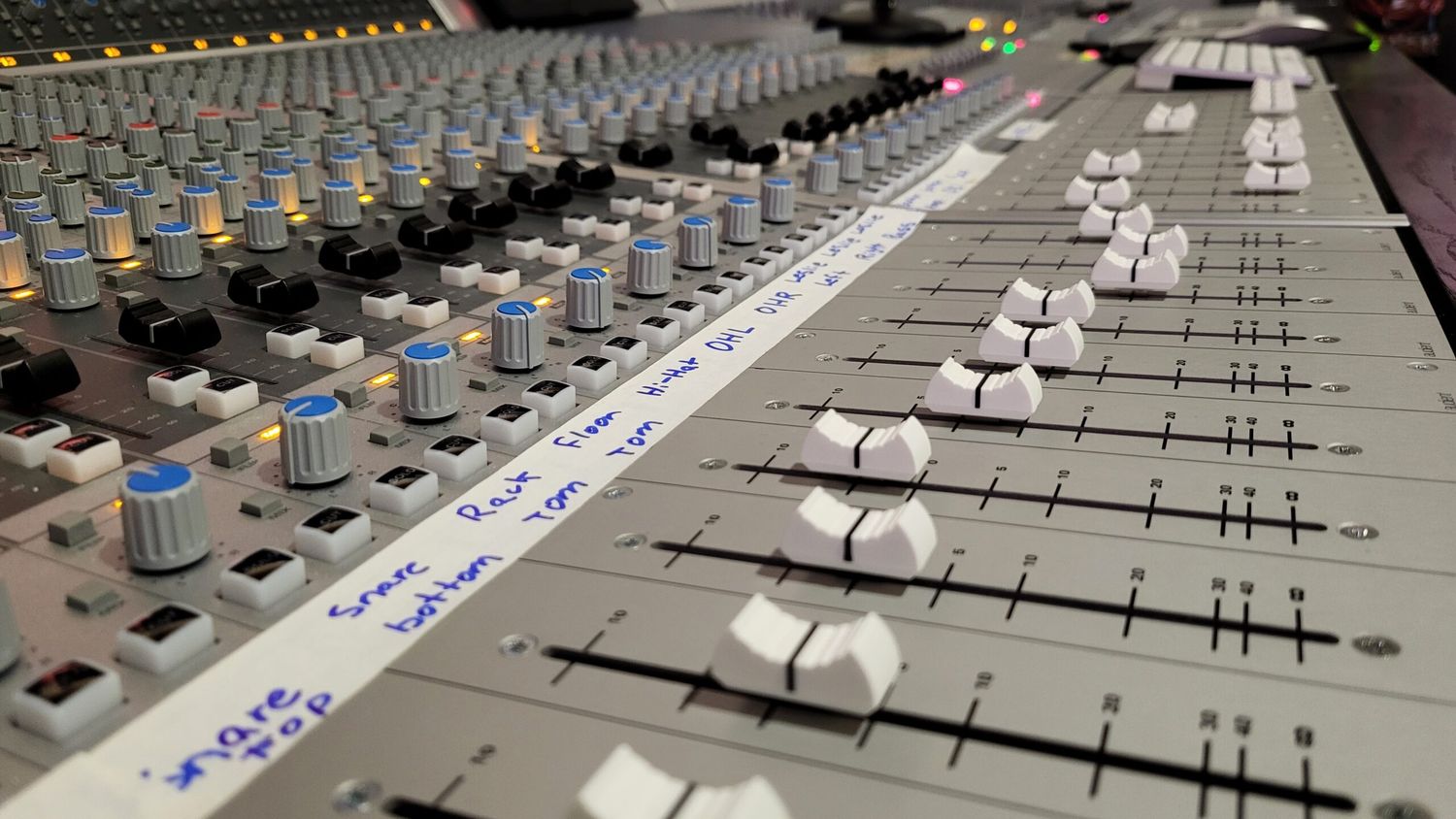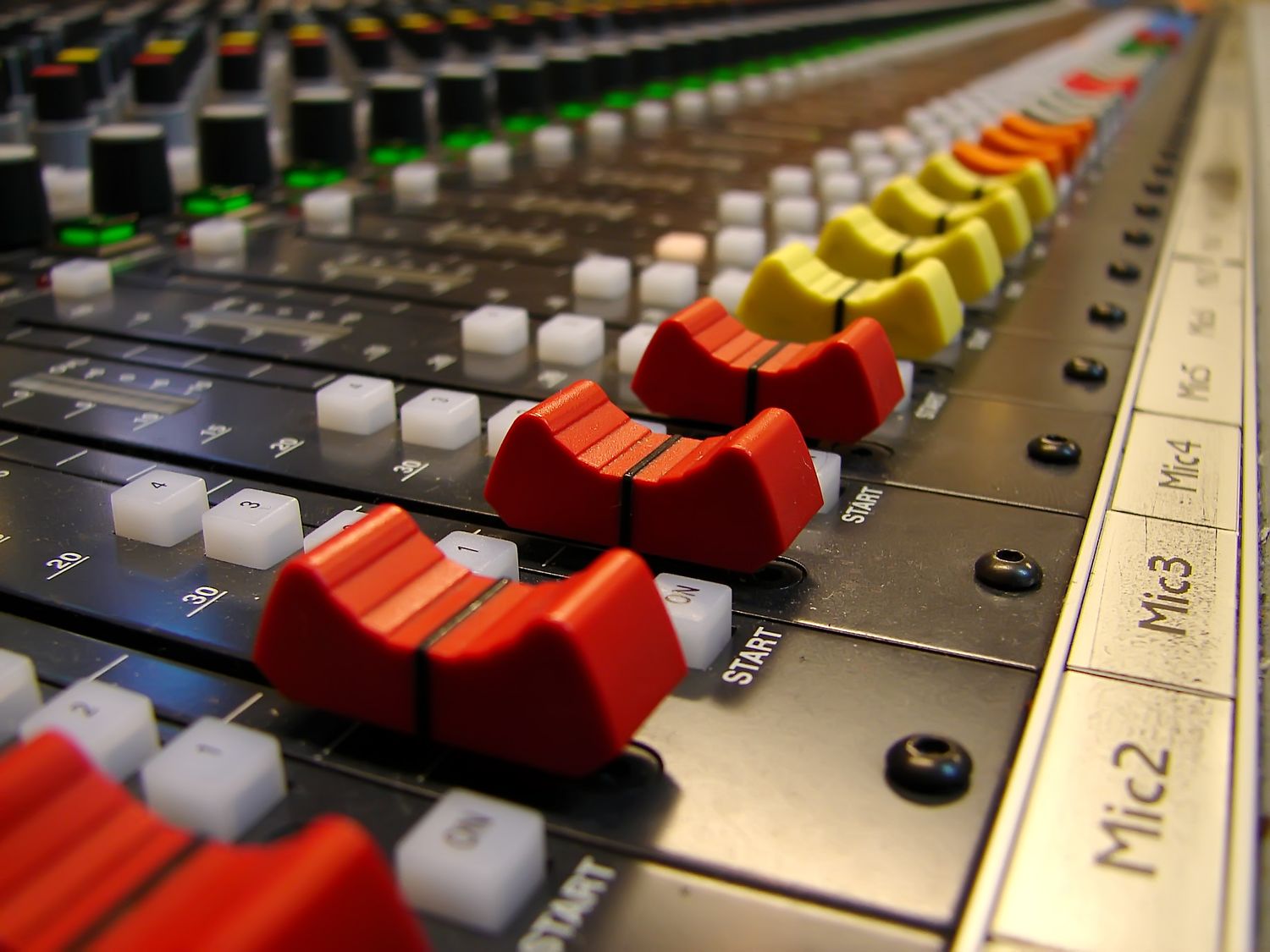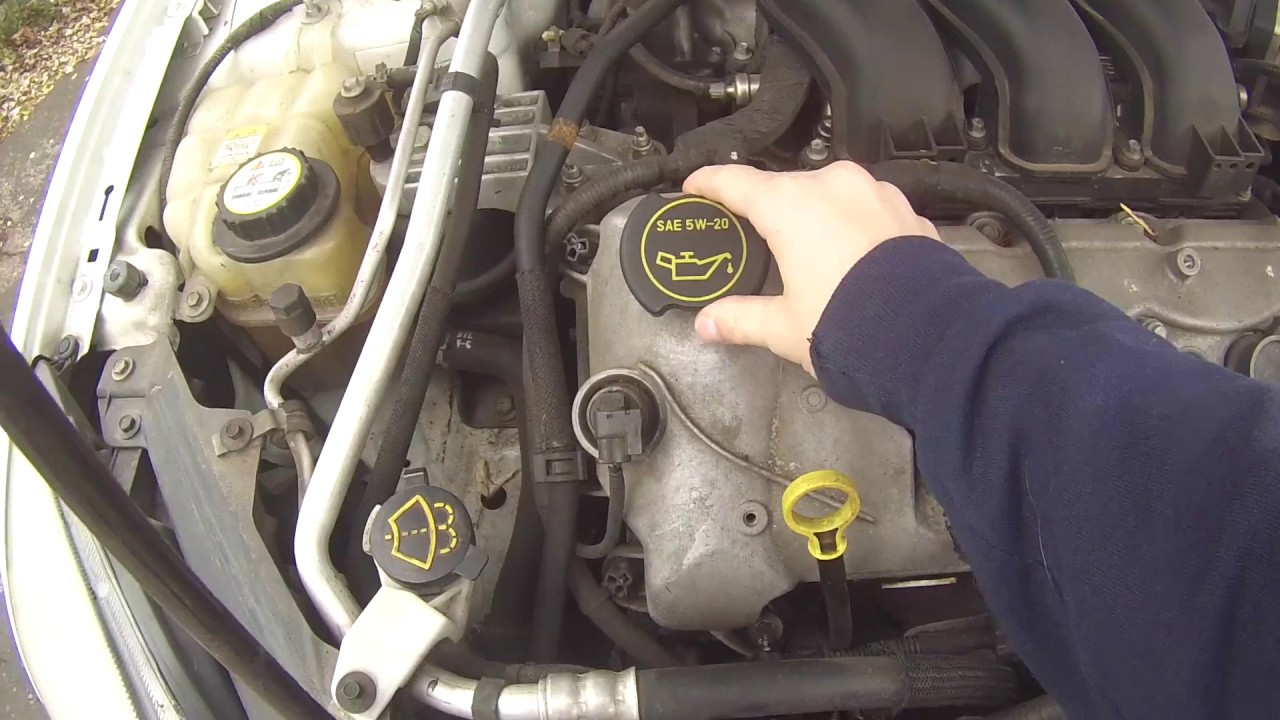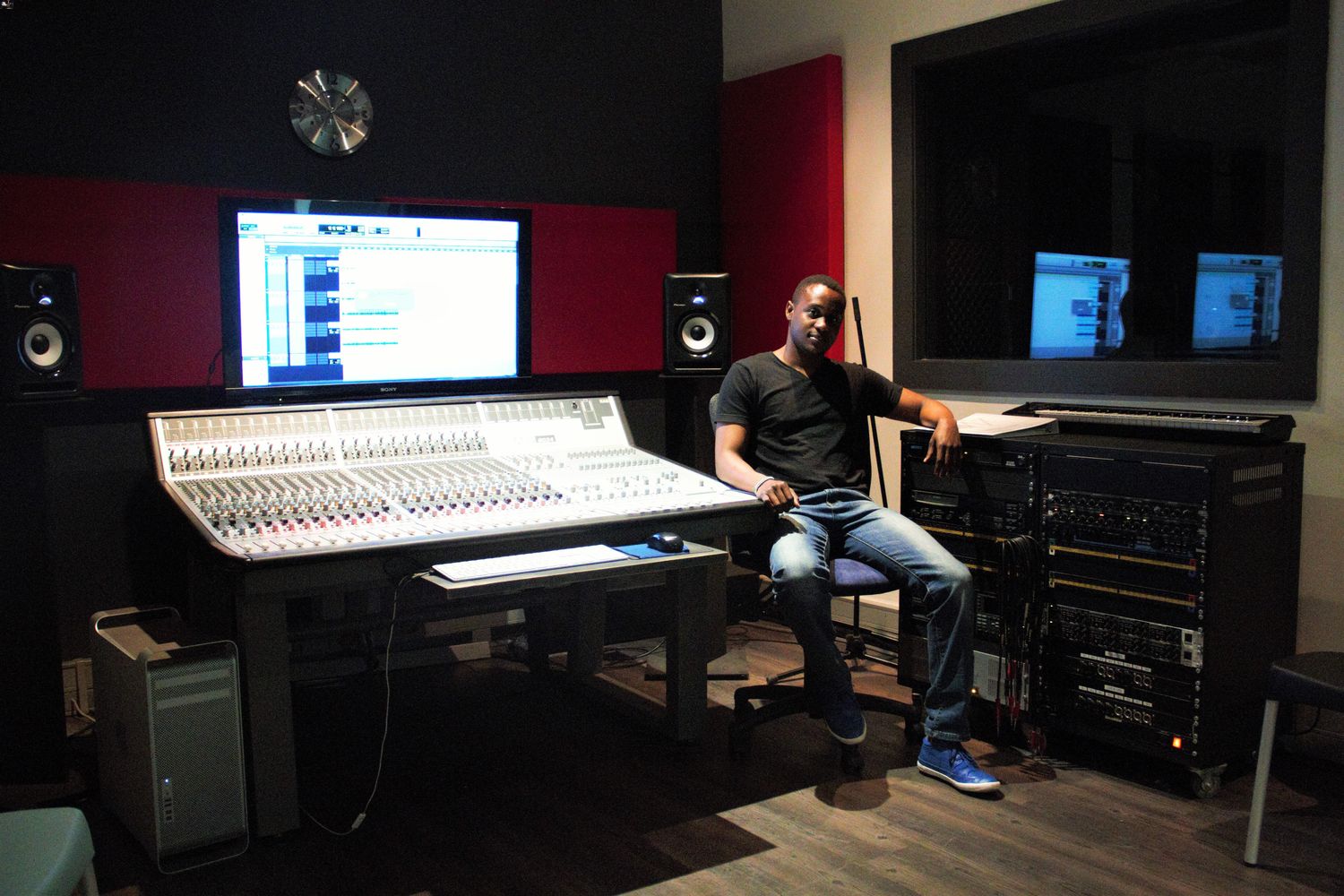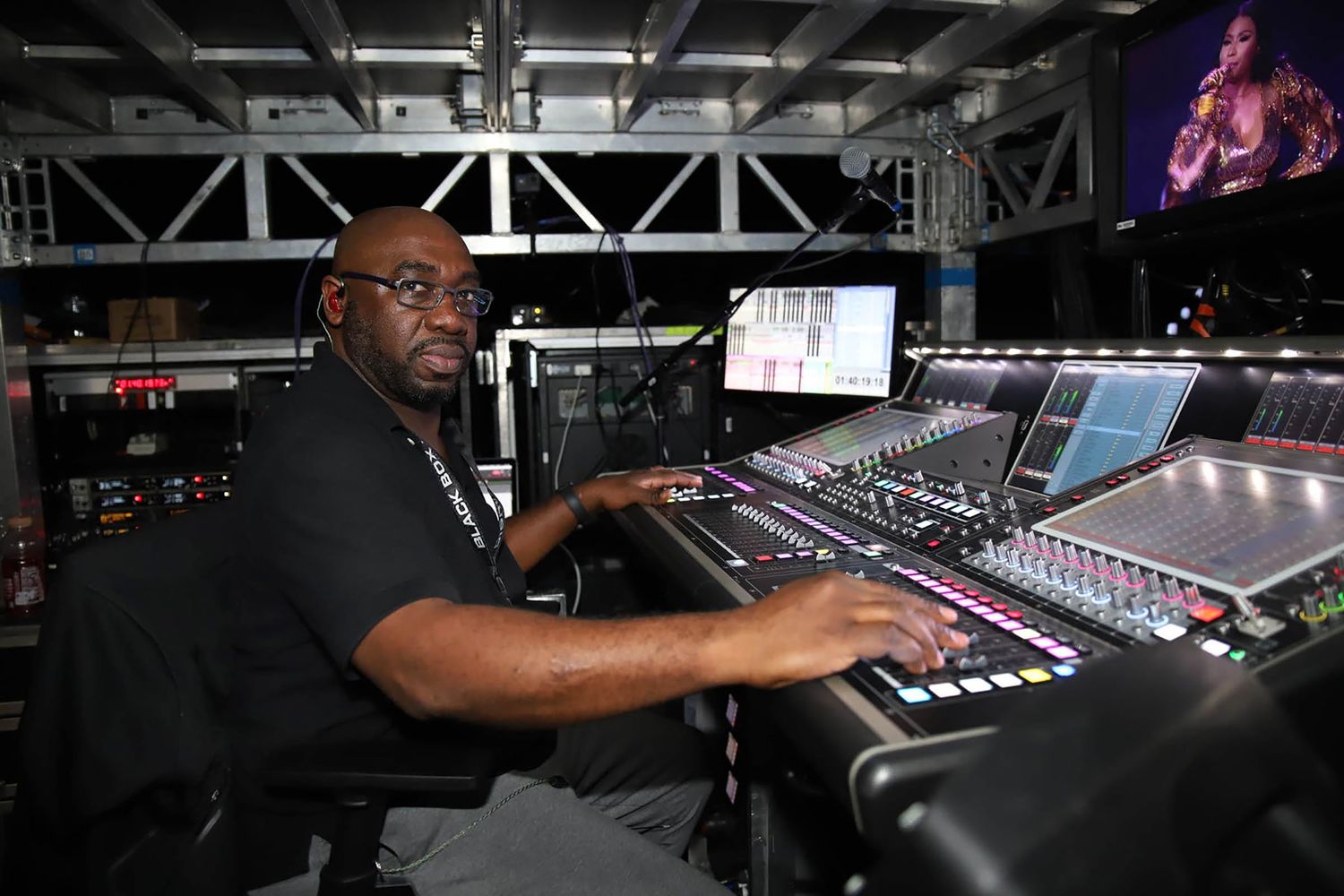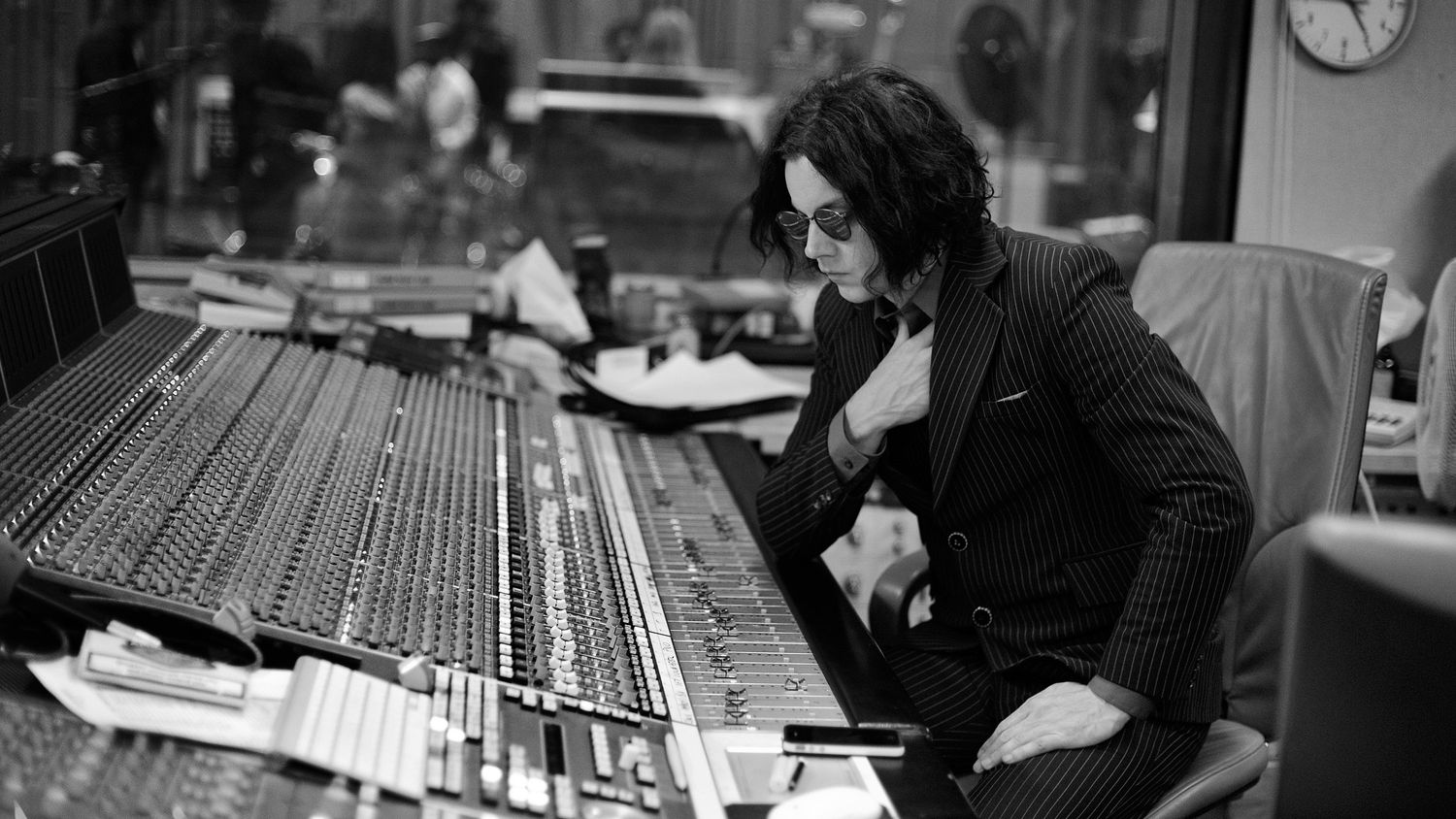Home>Production & Technology>Sound Engineer>How To Write A Resume For A Sound Engineer
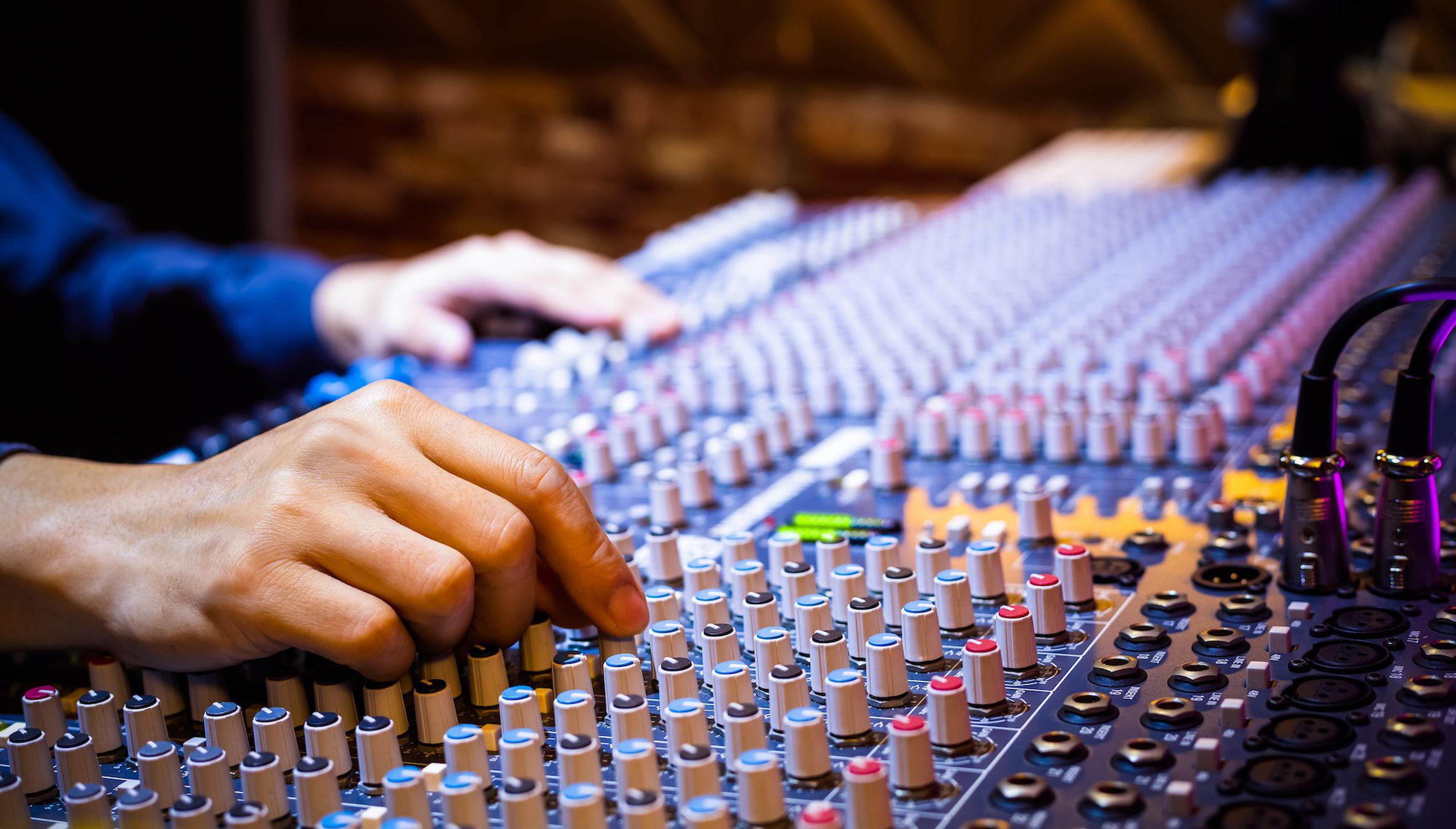

Sound Engineer
How To Write A Resume For A Sound Engineer
Published: March 7, 2024
Learn how to craft a standout resume for a sound engineer with our expert tips and examples. Showcase your skills and experience to land your dream job in the music industry.
(Many of the links in this article redirect to a specific reviewed product. Your purchase of these products through affiliate links helps to generate commission for AudioLover.com, at no extra cost. Learn more)
Table of Contents
- Introduction
- Understanding the Role of a Sound Engineer
- Choosing the Right Format for Your Resume
- Highlighting Your Skills and Experience
- Education and Certification
- Showcasing Your Work Experience
- Including Relevant Technical Skills
- Adding a Professional Summary or Objective Statement
- Listing Your Achievements and Projects
- Including Additional Sections for a Comprehensive Resume
- Final Tips for a Standout Sound Engineer Resume
Introduction
Crafting a compelling resume is an essential step in securing a rewarding career as a sound engineer. Your resume serves as a powerful tool to showcase your expertise, experience, and passion for audio engineering. It is the first impression you make on potential employers, making it crucial to present a well-structured and impactful document that highlights your unique qualifications.
In the competitive field of sound engineering, a well-crafted resume can make all the difference in capturing the attention of hiring managers and securing coveted opportunities. Whether you are a seasoned professional or a budding sound engineer looking to kickstart your career, a thoughtfully constructed resume can effectively communicate your skills and accomplishments.
This article will guide you through the process of creating a standout resume tailored specifically for sound engineering roles. From understanding the role of a sound engineer to choosing the right format, highlighting your skills and experience, and incorporating essential sections, you will gain valuable insights into optimizing your resume for success in the dynamic and vibrant world of sound engineering.
As you embark on this journey to refine your resume, remember that each section plays a crucial role in presenting a comprehensive picture of your capabilities and achievements. By following the strategies outlined in this article, you will be well-equipped to craft a compelling resume that resonates with potential employers and sets the stage for a fulfilling career in sound engineering.
Understanding the Role of a Sound Engineer
A sound engineer, also known as an audio engineer, plays a pivotal role in the creation, recording, mixing, and reproduction of sound. Whether working in a recording studio, live music venue, film production set, or broadcasting facility, sound engineers are responsible for ensuring the highest quality of audio output across various mediums. Their expertise encompasses a wide array of technical skills, creative acumen, and a deep understanding of audio equipment and software.
In the realm of music production, sound engineers collaborate closely with artists and producers to capture and refine the sonic elements of a recording. They meticulously set up microphones, adjust recording levels, and utilize their keen ear for detail to achieve optimal sound quality. During the mixing and mastering stages, sound engineers skillfully balance and enhance individual tracks, applying effects and equalization to achieve a cohesive and polished sound.
In the realm of live sound reinforcement, sound engineers are the unsung heroes behind the scenes, ensuring that audiences experience impeccable sound during concerts, events, and performances. They expertly manage soundboards, amplifiers, and speaker systems, adeptly adjusting levels and addressing acoustical challenges to deliver an immersive auditory experience for attendees.
In the realm of film and television production, sound engineers are integral to capturing high-fidelity audio on set. They strategically position microphones, manage wireless audio systems, and oversee the recording of dialogue, ambient sounds, and foley effects. Their technical prowess and attention to detail contribute to the seamless integration of sound with visual storytelling, enriching the overall cinematic experience.
Moreover, sound engineers are at the forefront of technological advancements, constantly adapting to new audio technologies and software innovations. Their role extends beyond technical proficiency, encompassing a deep understanding of acoustics, signal flow, and the ability to troubleshoot and resolve audio-related issues efficiently.
In essence, the role of a sound engineer demands a harmonious blend of technical expertise, artistic sensibility, and adaptability. Sound engineers are the architects of auditory experiences, shaping and sculpting sound to evoke emotions, convey narratives, and elevate the impact of audio across diverse mediums. Their contributions are integral to the seamless fusion of art and technology, making the role of a sound engineer both dynamic and indispensable in the realm of audio production and reproduction.
Choosing the Right Format for Your Resume
The format of your resume is the canvas upon which you will artfully present your qualifications and experiences as a sound engineer. Selecting the appropriate format is crucial, as it determines the overall structure and visual appeal of your resume. When it comes to sound engineering, a well-organized and visually engaging resume can effectively capture the attention of potential employers and convey your professional prowess. Here are key considerations for choosing the right format for your sound engineer resume:
1. Chronological Format:
The chronological format is a popular choice for sound engineers with a solid work history. This format emphasizes your work experience, listing your most recent positions first. It allows hiring managers to quickly grasp your career progression and the depth of your experience in the field.
2. Functional Format:
For sound engineers who wish to highlight their specific skills and technical proficiencies, the functional format is an excellent option. This format focuses on showcasing your abilities and accomplishments, allowing you to spotlight your expertise in areas such as audio mixing, equipment operation, and sound design.
3. Combination Format:
As the name suggests, the combination format offers a blend of the chronological and functional formats. This format is ideal for sound engineers who want to present a comprehensive overview of their skills, work history, and achievements. It allows you to highlight your technical competencies while also showcasing your professional trajectory.
Visual Appeal:
Regardless of the chosen format, it is essential to ensure that your resume is visually appealing and easy to navigate. Utilize clear headings, bullet points, and a balanced layout to enhance readability. Incorporating relevant industry-specific keywords and phrases can further optimize your resume for applicant tracking systems (ATS) used by many employers.
Tailoring to the Job Description:
When selecting the format for your resume, consider the specific requirements of the job you are applying for. Tailoring your resume to align with the job description and desired qualifications can significantly increase your chances of making a positive impression on hiring managers.
By carefully considering these factors and selecting a format that best showcases your skills and experiences, you can create a compelling sound engineer resume that effectively communicates your expertise and sets you apart in the competitive job market.
Highlighting Your Skills and Experience
As a sound engineer, effectively highlighting your skills and experience is paramount in crafting a compelling resume that captures the attention of potential employers. This section serves as the core of your resume, offering a comprehensive overview of your technical proficiencies, creative abilities, and professional achievements in the realm of audio engineering.
Showcasing Technical Proficiencies:
Your resume should prominently feature a diverse array of technical skills relevant to sound engineering. This may include proficiency in digital audio workstations (DAWs) such as Pro Tools, Logic Pro, or Ableton Live, as well as expertise in operating mixing consoles, outboard gear, and signal processing equipment. Additionally, showcasing knowledge of audio plugins, sound synthesis, and audio restoration techniques can further demonstrate your technical acumen.
Demonstrating Audio Production Expertise:
Highlighting your experience in audio production is essential for showcasing your ability to oversee the recording, editing, and mixing processes. Emphasize your proficiency in microphone placement, multi-track recording, and post-production techniques. If you have experience in sound design for film, video games, or multimedia projects, be sure to articulate your contributions to the creative and technical aspects of audio production.
Detailing Live Sound Reinforcement Skills:
For sound engineers with expertise in live sound reinforcement, detailing your skills in managing sound systems for concerts, events, or theatrical productions is crucial. This may encompass proficiency in setting up and operating PA systems, managing stage monitors, and executing sound checks. Additionally, highlighting your ability to address acoustical challenges and ensure optimal sound quality in live settings can significantly bolster your resume.
Illustrating Problem-Solving Abilities:
Sound engineering often involves troubleshooting technical issues and addressing acoustic challenges in real-time. Illustrate your problem-solving abilities by showcasing instances where you successfully resolved audio-related issues, optimized sound quality in challenging environments, or implemented innovative solutions to enhance audio production processes.
Showcasing Collaboration and Communication Skills:
Effective communication and collaboration are integral to success in sound engineering. Highlight your ability to collaborate with artists, producers, and fellow audio professionals, emphasizing your role in achieving a cohesive sonic vision. Additionally, showcasing your communication skills in coordinating with performers, directors, and production teams can underscore your ability to thrive in collaborative environments.
By thoughtfully highlighting your skills and experience in these key areas, you can create a compelling narrative of your expertise as a sound engineer, setting the stage for a standout resume that resonates with potential employers in the dynamic and multifaceted field of audio engineering.
Education and Certification
The "Education and Certification" section of a sound engineer's resume serves as a testament to the individual's commitment to professional development and mastery of the technical and theoretical aspects of audio engineering. This section provides a comprehensive overview of the individual's educational background, specialized training, and any relevant certifications that validate their expertise in the field of sound engineering.
Academic Qualifications:
The academic qualifications listed in this section typically include the individual's highest level of education, such as a bachelor's degree in audio engineering, sound production, music technology, or a related field. Additionally, any relevant coursework, specialized training programs, or workshops focused on audio recording, mixing, and mastering may be highlighted to showcase a dedication to continuous learning and skill enhancement.
Specialized Training and Certifications:
Sound engineers often pursue specialized training and certifications to augment their practical skills and theoretical knowledge. Certifications from renowned audio engineering institutions or industry-recognized organizations, such as the Audio Engineering Society (AES) or Avid, can add significant credibility to the individual's qualifications. Furthermore, specialized certifications in areas such as live sound reinforcement, audio post-production, or specific software platforms like Pro Tools or Ableton Live demonstrate a commitment to mastering the tools and techniques essential to sound engineering.
Ongoing Professional Development:
In the rapidly evolving landscape of audio technology, ongoing professional development is essential for sound engineers to stay abreast of the latest advancements and best practices. This section may also include details of any continuing education courses, seminars, or workshops attended to expand technical skills, deepen theoretical knowledge, or explore emerging trends in audio engineering. Additionally, participation in industry conferences, webinars, or networking events can further underscore the individual's proactive approach to professional growth and knowledge acquisition.
Relevance to Sound Engineering Roles:
When detailing education and certifications, it is crucial to emphasize the direct relevance of the acquired knowledge and credentials to the responsibilities of a sound engineer. Whether it's a comprehensive understanding of acoustics, signal processing, or advanced audio production techniques, the educational background and certifications should align with the technical demands and creative nuances of sound engineering roles across various domains, including music production, live sound reinforcement, and audio post-production for visual media.
In summary, the "Education and Certification" section of a sound engineer's resume serves as a testament to the individual's dedication to continuous learning, mastery of technical skills, and adherence to industry standards. By effectively showcasing academic achievements, specialized training, and relevant certifications, sound engineers can bolster their credentials and position themselves as adept professionals poised to excel in the dynamic and ever-evolving realm of sound engineering.
Showcasing Your Work Experience
The "Showcasing Your Work Experience" section of a sound engineer's resume serves as a comprehensive narrative of the individual's professional journey, highlighting key roles, projects, and contributions that have shaped their expertise in the realm of audio engineering. This section provides hiring managers with a detailed insight into the candidate's practical experience, technical proficiencies, and creative accomplishments within diverse audio production environments.
When detailing work experience, sound engineers should prioritize clarity, specificity, and relevance to the targeted role. Each position held should be accompanied by a concise yet detailed description of responsibilities, achievements, and notable projects. Whether it involves studio recording, live sound reinforcement, audio post-production, or a combination of these domains, the work experience section should effectively convey the depth and breadth of the individual's contributions to the field of sound engineering.
Key elements to include in the "Showcasing Your Work Experience" section encompass:
Position Titles and Employers:
Clearly listing the positions held and the respective employers provides a chronological overview of the individual's professional trajectory. This includes roles such as Recording Engineer, Live Sound Engineer, Audio Producer, Sound Designer, or any other relevant titles held within the audio production industry.
Detailed Descriptions of Responsibilities:
Each position should be accompanied by a detailed description of the specific responsibilities undertaken. This may include overseeing recording sessions, operating sound equipment, collaborating with artists and producers, managing live sound setups, executing post-production tasks, and any other duties integral to the respective roles held.
Notable Projects and Achievements:
Highlighting specific projects, productions, or achievements within each role adds depth and context to the individual's work experience. This may encompass successful album recordings, high-profile live events, award-winning film soundtracks, innovative sound design projects, or any other noteworthy accomplishments that demonstrate the individual's impact and proficiency in the field.
Quantifiable Results and Impact:
Where applicable, quantifying the impact of the individual's contributions can significantly enhance the credibility of their work experience. This may include metrics such as record sales, audience attendance numbers for live events, industry awards received, or any other tangible outcomes that reflect the individual's effectiveness and influence in their roles.
By effectively showcasing work experience with a focus on clarity, specificity, and demonstrable impact, sound engineers can present a compelling narrative of their professional journey, technical expertise, and creative accomplishments. This section serves as a testament to the individual's contributions to the field of sound engineering, positioning them as valuable assets to prospective employers seeking adept and accomplished audio professionals.
Including Relevant Technical Skills
The "Including Relevant Technical Skills" section of a sound engineer's resume serves as a pivotal component in showcasing the individual's proficiency in a diverse range of audio technologies, software platforms, and hardware equipment essential to the field of sound engineering. This section offers a comprehensive overview of the technical competencies that underpin the individual's ability to excel in roles encompassing music production, live sound reinforcement, audio post-production, and other specialized domains within the audio production industry.
When detailing technical skills, sound engineers should prioritize specificity, relevance to the targeted roles, and a balance between foundational proficiencies and specialized expertise. This section typically encompasses a broad spectrum of technical skills, including proficiency in digital audio workstations (DAWs) such as Pro Tools, Logic Pro, Ableton Live, or other industry-standard software platforms utilized for recording, editing, and mixing audio.
Moreover, highlighting expertise in operating mixing consoles, outboard gear, signal processing equipment, and audio plugins is essential to convey the individual's command over the technical infrastructure integral to sound engineering. Additionally, proficiency in sound synthesis, audio restoration techniques, and knowledge of emerging audio technologies further underscores the individual's adaptability and forward-thinking approach to audio production.
For sound engineers specializing in live sound reinforcement, technical skills related to setting up and operating PA systems, managing stage monitors, and executing sound checks are paramount. The ability to address acoustical challenges, optimize sound quality in diverse venues, and troubleshoot technical issues in real-time demonstrates the individual's readiness to excel in dynamic live sound environments.
Furthermore, sound engineers may highlight their expertise in microphone placement, multi-track recording, post-production techniques, and sound design for visual media to showcase their comprehensive understanding of audio production across diverse contexts.
In the realm of audio post-production, technical skills related to dialogue editing, sound effects design, foley recording, and audio mixing for film, television, and gaming projects are of utmost importance. Proficiency in industry-standard post-production software and familiarity with immersive audio formats further solidify the individual's technical prowess in this specialized domain.
By effectively detailing a comprehensive array of relevant technical skills, sound engineers can present a compelling testament to their technical acumen, adaptability, and readiness to excel in the multifaceted and ever-evolving landscape of sound engineering. This section serves as a foundational pillar in positioning the individual as a proficient and versatile audio professional poised to make significant contributions in diverse audio production environments.
Adding a Professional Summary or Objective Statement
The "Professional Summary" or "Objective Statement" section of a sound engineer's resume serves as a concise yet impactful introduction, providing hiring managers with a snapshot of the individual's professional identity, career aspirations, and key attributes as they relate to the targeted role. This section offers an opportunity for sound engineers to craft a compelling narrative that encapsulates their unique value proposition, expertise, and overarching career goals.
A well-crafted professional summary effectively encapsulates the individual's professional trajectory, highlighting their core competencies, notable achievements, and the specific value they bring to prospective employers. It serves as a compelling opening statement, setting the tone for the rest of the resume and capturing the attention of hiring managers from the outset.
When composing a professional summary, sound engineers should focus on articulating their specialized skills, industry experience, and the unique blend of technical proficiency and creative acumen that distinguishes them in the field of sound engineering. This may include emphasizing expertise in audio production, live sound reinforcement, studio recording, or audio post-production, depending on the individual's areas of specialization.
Moreover, the professional summary should convey the individual's passion for audio engineering, their commitment to delivering exceptional sonic experiences, and their dedication to staying abreast of emerging technologies and industry trends. It serves as a platform to communicate the individual's enthusiasm for the art and science of sound engineering, positioning them as driven professionals deeply invested in the craft of audio production.
In addition to showcasing technical prowess, the professional summary can also underscore the individual's collaborative spirit, communication skills, and ability to thrive in dynamic, team-oriented environments. By articulating a commitment to excellence, adaptability, and a proactive approach to problem-solving, sound engineers can convey their readiness to contribute meaningfully to the success of prospective employers.
Ultimately, the professional summary or objective statement serves as a compelling introduction, encapsulating the individual's professional essence and positioning them as a valuable asset poised to excel in the multifaceted and dynamic realm of sound engineering. When crafted thoughtfully, this section sets the stage for a compelling and impactful resume that resonates with hiring managers and underscores the individual's potential to make significant contributions in the field of audio production.
Listing Your Achievements and Projects
The "Listing Your Achievements and Projects" section of a sound engineer's resume serves as a compelling showcase of the individual's notable accomplishments, impactful projects, and contributions that have left a lasting imprint on the realm of audio engineering. This section offers a platform to highlight key milestones, creative triumphs, and tangible outcomes that underscore the individual's proficiency, innovation, and influence within diverse audio production environments.
When detailing achievements and projects, sound engineers should prioritize specificity, quantifiable results, and a balance between individual contributions and collaborative endeavors. Each achievement and project should be accompanied by a detailed description that articulates the challenges addressed, the strategies employed, and the tangible impact realized. Whether it involves successful album productions, groundbreaking live events, award-winning sound designs, or innovative audio post-production endeavors, the achievements and projects section should effectively convey the depth and breadth of the individual's creative and technical prowess.
Key elements to include in this section encompass:
Notable Achievements:
Highlighting specific achievements, accolades, or industry recognitions underscores the individual's impact and proficiency in the field of sound engineering. This may include receiving industry awards, accolades for technical innovations, or recognition for contributions to high-profile audio productions. By quantifying the impact of these achievements, sound engineers can effectively convey their influence and excellence within the audio production landscape.
Project Contributions:
Detailing the individual's contributions to significant projects offers insight into their creative vision, technical expertise, and collaborative prowess. Whether it involves spearheading audio production for chart-topping albums, executing flawless sound reinforcement for large-scale events, or delivering immersive soundscapes for visual media, articulating the individual's role and impact within these projects provides a comprehensive overview of their professional capabilities.
Innovation and Problem-Solving:
Emphasizing instances where the individual implemented innovative solutions, addressed complex audio challenges, or contributed to pioneering audio technologies showcases their adaptability and forward-thinking approach. By detailing instances of problem-solving, technical innovation, or creative breakthroughs, sound engineers can underscore their ability to push boundaries and elevate the standards of audio production.
Collaborative Endeavors:
Highlighting collaborative projects and cross-disciplinary initiatives underscores the individual's ability to thrive in team-oriented environments. Whether it involves collaborating with artists, producers, directors, or fellow audio professionals, articulating the individual's role in achieving collective creative visions and delivering exceptional sonic experiences further solidifies their value as a collaborative and impactful audio professional.
By effectively listing achievements and projects with a focus on specificity, quantifiable impact, and collaborative prowess, sound engineers can present a compelling narrative of their creative and technical contributions to the field of sound engineering. This section serves as a testament to the individual's excellence, innovation, and influence, positioning them as adept professionals poised to make significant and enduring contributions in the dynamic and vibrant realm of audio production.
Including Additional Sections for a Comprehensive Resume
In addition to the core sections of a sound engineer's resume, incorporating supplementary sections can further enrich the document, providing a holistic portrayal of the individual's professional profile and enhancing their appeal to potential employers. These additional sections offer opportunities to showcase diverse facets of the sound engineer's expertise, interests, and professional ethos, contributing to a comprehensive and compelling resume.
Professional Affiliations and Memberships
Detailing affiliations with industry organizations, such as the Audio Engineering Society (AES), the Society of Broadcast Engineers (SBE), or other relevant professional associations, underscores the individual's commitment to ongoing professional development and engagement with the broader audio engineering community. This section may also include leadership roles held within these organizations, participation in industry events, and contributions to professional forums, highlighting the individual's active involvement in shaping the discourse and advancements within the field.
Publications and Presentations
For sound engineers who have contributed to industry publications, research papers, or technical presentations, this section offers a platform to showcase their thought leadership and contributions to the dissemination of knowledge within the audio engineering domain. Whether it involves authored articles, conference presentations, or educational materials, detailing these contributions underscores the individual's expertise and influence in shaping industry discourse and best practices.
Language Proficiency
In the context of sound engineering roles that involve international collaborations, live events in diverse regions, or multilingual audio production projects, highlighting language proficiency can be advantageous. This section provides insight into the individual's ability to communicate effectively in multiple languages, facilitating seamless interactions with global teams, artists, and production crews, and enhancing their versatility in navigating diverse cultural and linguistic landscapes.
Professional Development Initiatives
Detailing participation in specialized workshops, training programs, or certifications beyond formal education underscores the individual's proactive approach to skill enhancement and staying abreast of emerging audio technologies. This section may include details of advanced training in specific audio software, certifications in emerging audio production techniques, or participation in industry-recognized masterclasses, showcasing the individual's dedication to continuous learning and technical mastery.
Volunteer and Community Engagement
For sound engineers involved in community outreach, educational initiatives, or volunteer work related to audio engineering, this section offers a platform to showcase their commitment to giving back and nurturing the next generation of audio professionals. Whether it involves mentoring aspiring sound engineers, leading workshops in educational institutions, or contributing to audio-related community projects, detailing these engagements underscores the individual's broader impact and ethos of social responsibility within the audio engineering ecosystem.
By incorporating these additional sections, sound engineers can present a multifaceted and compelling resume that extends beyond core professional experiences, offering a comprehensive portrayal of their expertise, values, and contributions within the dynamic and diverse landscape of sound engineering.
Final Tips for a Standout Sound Engineer Resume
Crafting a standout sound engineer resume requires attention to detail, strategic presentation, and a keen understanding of the industry's expectations. Here are essential tips to elevate your resume and make a lasting impression on potential employers:
-
Tailor Your Resume: Customize your resume for each application by aligning your skills and experiences with the specific requirements of the job. Highlight relevant technical proficiencies, project experiences, and achievements that directly resonate with the role you are pursuing.
-
Showcase Versatility: Emphasize your ability to work across diverse audio production environments, whether it's studio recording, live sound reinforcement, or audio post-production. Demonstrating adaptability and a wide-ranging skill set can position you as a versatile and valuable asset to prospective employers.
-
Quantify Achievements: Where possible, quantify the impact of your contributions. Whether it's the number of albums recorded, audience attendance figures for live events, or industry awards received, providing tangible metrics adds credibility and depth to your accomplishments.
-
Emphasize Collaboration: Highlight your collaborative spirit and effective communication skills. Sound engineering often involves teamwork and coordination with artists, producers, and technical crews. Articulate your ability to thrive in collaborative environments and contribute to collective creative visions.
-
Stay Updated: Showcase your commitment to staying abreast of emerging audio technologies, industry trends, and best practices. Highlight any ongoing professional development initiatives, specialized training, or certifications that demonstrate your proactive approach to skill enhancement.
-
Prioritize Readability: Ensure that your resume is visually appealing and easy to navigate. Use clear headings, bullet points, and a balanced layout to enhance readability. Incorporate relevant industry-specific keywords and phrases to optimize your resume for applicant tracking systems (ATS).
-
Seek Feedback: Before finalizing your resume, seek feedback from mentors, colleagues, or industry professionals. Constructive input can help refine your resume and ensure that it effectively communicates your expertise and accomplishments.
By implementing these tips, you can elevate your sound engineer resume to effectively capture the attention of hiring managers and position yourself as a standout candidate in the competitive landscape of audio engineering.

